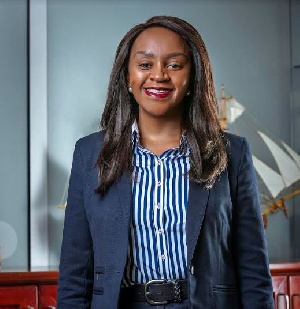The eve of March 8th has me reflecting on the reason for the United Nation’s establishment of an official International Women’s Day, back in 1975. Prior to this, several countries had in some shape or form commemorated a Women’s day, with March 8th, 1975 being the first International Women’s Day as formally established by the UN.
The intention was to create a rally point where everyone across the globe could celebrate women and stop to assess how well we are doing in supporting women’s participation in political and economic activity.
So, how well are we actually doing? According to the World Economic Forum 2018 Global Gender Gap Index, it will take more than a century to close the gap between men and women in sub-Saharan Africa.
This may seem disheartening, But, I do think society has made several deliberate steps and has come a long way in affording and exposing women to similar opportunities as men.
Years ago, studying Computer Science in University, the ratio of my male to female classmates was staggering but I’m encouraged to see how the number of female students graduating from these previously male dominated disciplines has grown substantially since then.
Further still, my first Chief Executive role had me as the only female on my executive team. Today however, leading AirtelTigo, it’s exciting to see that 40 per cent of my executive team is female. Even more humbling is the fact that having become AirtelTigo CEO just over 8 months ago, two of my predecessors were women. This is progress.
I believe in gender equality and its importance to socio-economic development. I believe in inclusion and diversity in the working environment to allow people to grow and succeed, regardless of their gender or race.
Some have said that the empowerment of a woman is the empowerment of generations to come.
Some facts and figures from unwomen.org show that when more women work, economies grow. When there are increased leadership opportunities for women, organizations’ effectiveness and growth is accelerated.
Many companies in Africa, like AirtelTigo will embark on different initiatives to help create “Balance for Better”, as inspired by the theme for this year’s International Women’s Day. AirtelTigo will for instance over the next few days shine a light on all the fabulous female talent we have in the organization, in the hope that this will inspire other females to rise to their potential too.
Achieving gender equality is a shared responsibility. In partnership with the private sector, our governments should also continue with deliberate policies and programmes to ensure equal access to education, healthcare, economic and leadership opportunities.
There is also a responsibility on us as women to rise up and relentlessly go after the opportunities we desire. The opportunities that we know if afforded we could make significant impact in and through. Relentlessness knows no gender, nor does hard work nor ambition.
As we celebrate ourselves as women, I encourage us all to make good use of our skills and talents and support each other as women and sisters of Africa -- to help transform our economies and societies. Women are an important voice in the governance of our communities and nations. Together, let’s build a gender-balanced continent, better for our children, communities, businesses and governments.
About AirtelTigo CEO:
Mrs Mitwa Kaemba Ng’ambi is the Chief Executive Officer of AirtelTigo, the second largest mobile operator in Ghana. Originally from Zambia, she has spent the last decade of her career in the telecommunications industry where she has developed a track record of building high-performing teams and driving business profitability across operations in Africa.
A software engineer by training, she has held various roles in Information Technology and Commercial. Prior to joining AirtelTigo, Mrs Ng’ambi was the CEO of Tigo in Senegal.
Click to view details



Business News of Thursday, 7 March 2019
Source: AirtelTigo

















